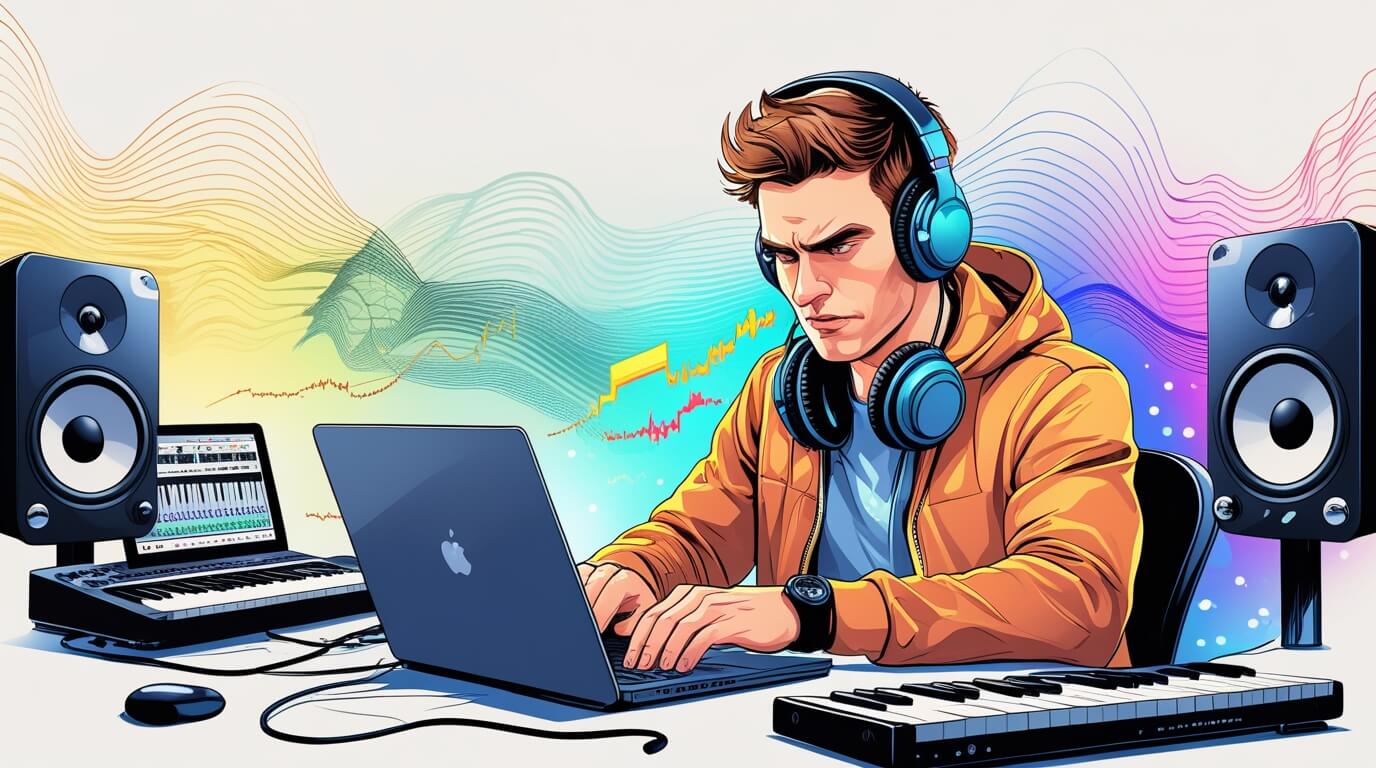August 01, 2025

Music production is no longer limited to high-budget studios or expensive music schools. Whether you're dreaming of producing your own beats, scoring films, or just recording tracks at home, you can now learn the fundamentals of music production entirely for free.
This guide outlines the best beginner-friendly resources available online—from tutorials and DAWs to sample packs and interactive learning tools—so you can start your journey in music production without spending a cent.
Before diving into plugins and software, it’s important to understand the foundations of music production. What is a DAW? How do audio interfaces work? What’s the difference between compression and EQ?
Some blogs offer structured, easy-to-follow posts designed for beginners, covering topics like:
For deeper insights, Sound on Sound offers free articles by industry professionals that break down mixing techniques, studio gear, and production tips.
YouTube is an incredible resource for music producers—especially visual learners. The following channels are great places to start:
Don’t just watch—follow along in your DAW and practice what’s being taught to solidify your learning.
The DAW is your creative hub—the software you’ll use to record, edit, and produce music. Fortunately, there are powerful DAWs available for free:
Start with small projects—like creating a four-bar loop or remixing a sample—and work your way up to full tracks.
Sound libraries are essential to building tracks, and there are numerous free sources for high-quality samples:
Organize your downloads into folders by genre or instrument so you can quickly find what you need when inspiration strikes.
Plugins extend the functionality of your DAW. These can be virtual instruments (VSTs) like synths and pianos or effects like compressors and delays.
Many developers offer free versions of their software that rival premium plugins in sound quality and versatility. Explore:
Use trusted plugin download sites and always check compatibility with your DAW (Windows/macOS, 32-bit or 64-bit).
Your ears are your most important tools. Training them to recognize frequencies, balance levels, and understand stereo imaging will improve your production quality immensely.
Try:
Even spending 10 minutes a day on these exercises will help you make better mixing decisions and identify problems faster.
If you prefer structured learning, several educational platforms offer free courses, especially when auditing (no certificate required):
For quick immersion, consider starting with a challenge like this Free 7-Day Piano Challenge to get hands-on right away.
Consistency beats intensity. Rather than cramming all your learning into one weekend, aim to build a sustainable routine:
You don’t need fancy gear—just discipline, curiosity, and a pair of headphones.
Once you're comfortable with the basics, explore tools that speed up creativity:
You’ll still need strong production skills, but these tools can help spark ideas or break creative blocks.
With the explosion of free content, tools, and communities, learning music production is more accessible than ever. You don’t need expensive equipment or professional training—what you need is consistency, practice, and the courage to start.
Use the resources above to build a foundation, experiment freely, and enjoy the process. The world doesn’t need perfect music—it needs your perspective.
Would you like help turning this into a downloadable PDF, email series, or mini-course layout? Let me know!
Stay up to date with the latest tips, expert insights, product reviews, and step-by-step guides to help you grow, create, and succeed—no matter your industry or passion.